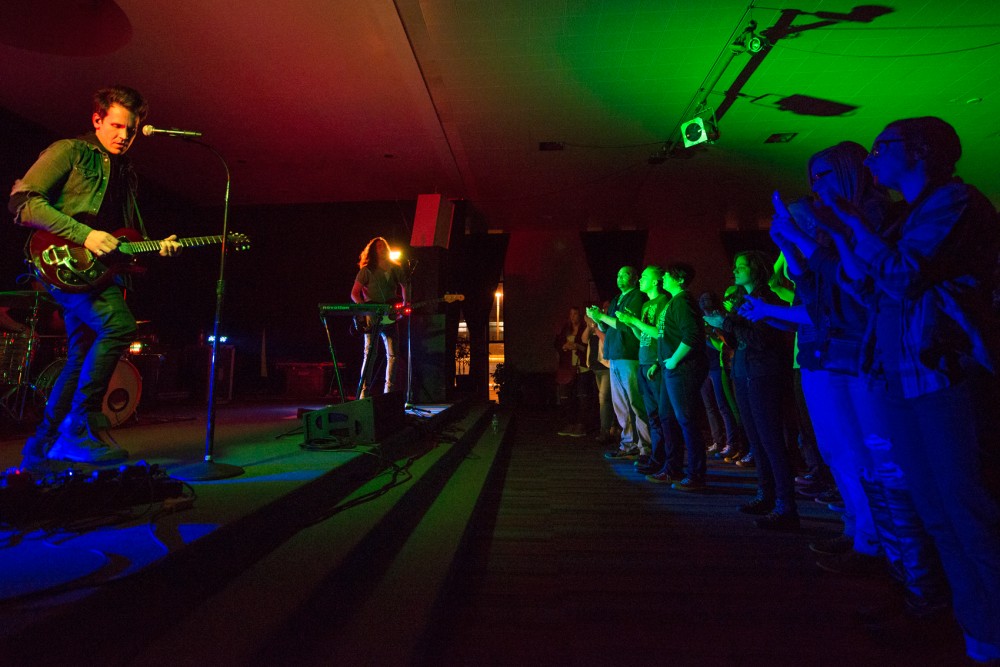University of Minnesota students and community members are working to raise funds and awareness to prevent human trafficking in the state and worldwide.
Minnesota’s International Justice Mission and the University of Minnesota’s IJM student chapter brought in nearly 160 attendees for a concert and fundraiser at Sojourn Campus Church last Friday in order to bolster consciousness of the issue.
Students founded the University’s IJM chapter in January 2015, said Emma Werner, the group’s co-founder and vice president. The group educates students on issues surrounding human trafficking.
“We try to make it local [and] address how we can help and empower students,” Werner said.
Human trafficking is the illegal movement of people for forced labor or sexual exploitation.
Keith Lokkesmoe, Trafficking Justice executive director, said the event aimed to raise $6,000 for a rescue mission, where a team will investigate a potential human trafficking ring. They’ll gather evidence about possible crimes and alert local police to the activities, Lokkesmoe said.
The event raised nearly $1,000 through donations and more than $5,000 through online fundraising, Lokkesmoe said.
Event attendees were invited to sign a petition supporting the “End Modern Slavery” bill as well.
The bill — currently in U.S. Congress — seeks to put $250 million toward a global fund that would assist countries with implementing anti-slavery initiatives, said Rachel Jefferies, IJM-Minnesota’s advocacy leader. The bill outlines measures to reduce slavery in those areas by 50 percent, she said.
Jefferies said the petition will be taken to Washington, D.C., when an IJM-Minnesota lobby group heads there later this month to advocate for the bill.
The University’s IJM chapter focuses on educating both the public and students, said Andrea Meitler, the group’s president. IJM-MN is mostly concerned with the policy side of the issue, she said.
The University’s chapter of IJM informs students about the issue by bringing in professionals who have combatted human trafficking firsthand, Werner said. Recent speakers include an undercover agent who worked with human trafficking victims, she said.
Over time, the group plans to collaborate with more victim shelters, Werner said.
IJM-UMN’s current size makes it difficult to focus on policy and prevention work with shelters, and more members would make these partnerships possible, she said.
“We’re trying to start a dialogue within the community,” Werner said.


